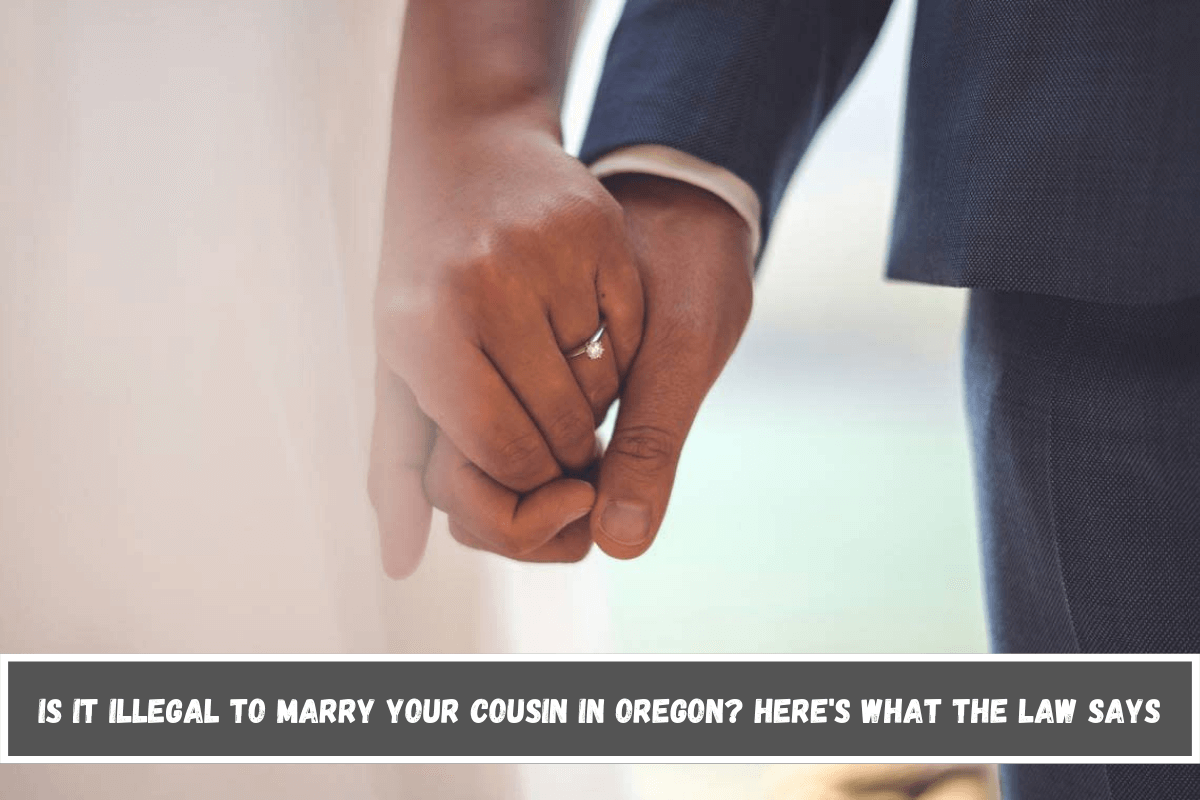Cousin marriage is a highly contentious issue. various people consider it taboo or even morally wrong, but in various parts of the world, it is a popular and long-standing practice. The legality of the practice varies greatly between countries, even states within the United States. In this post, we will examine in depth at Oregon legislation regulating cousin marriage.
Overview of Cousin Marriage Laws in the United States
The United States has a patchwork of laws concerning cousin marriage. Here’s a basic breakdown:
- States where first-cousin marriage is legal: Arizona (with restrictions), California, Colorado, Maine, New York, North Carolina, Rhode Island, and several others.
- States where first-cousin marriage is illegal: Approximately 24 U.S. states.
- States with varying restrictions: Several states have additional stipulations regarding cousin marriage, such as age requirements or required genetic counseling.
Oregon’s Stance on First-Cousin Marriage
Oregon law clearly prohibits first cousin marriages. “First cousins” are people who have a common grandmother. This means that your aunts and uncles’ children are not legally allowed to marry in Oregon.
Exceptions and Special Circumstances
There is one exception to Oregon’s general prohibition against first-cousin marriage. The legislation allows first cousins by adoption to marry. This means that if you were adopted into a family and had relatives who were adopted into the same family, you may marry them.
The Historical and Cultural Context of Cousin Marriage
Historically, cousin marriage was far more popular in the United States and around the world. Arranged marriages within families were used to consolidate authority, protect riches, and uphold cultural and religious beliefs. For example, famous historical personalities such as Charles Darwin and Albert Einstein married their first cousins.
Cousin marriage, while less common than it once was, is still practiced in several parts of the world, particularly in the Middle East, South Asia, and Africa.
Arguments For and Against Cousin Marriage
The debate surrounding the legality and morality of cousin marriage often revolves around ethical issues and the potential for genetic risks.
Arguments For:
- Personal Liberty: Some people argue that consenting adults should have the freedom to marry whomever they choose, regardless of familial ties.
- Cultural Tradition: In some cultures, cousin marriage is a long-held tradition passed down through generations.
- Love and Compatibility: Some couples may believe that they have a stronger connection with a cousin due to shared history and family values.
Arguments Against:
- Increased Risk of Genetic Disorders: Research indicates that children born from first-cousin marriages have a slightly elevated risk of recessive genetic disorders. However, this risk must be considered in context – the overall chance remains relatively low.
- Moral and Social Concerns: Some people consider cousin marriage to be morally wrong or socially taboo.
- Legal Complications: Laws prohibiting cousin marriage can create legal hurdles and complications for families.
Alternatives to First-Cousin Marriage in Oregon
It’s important to understand that there are alternatives to marrying your first cousin in Oregon:
- Marrying a More Distant Relative: Oregon permits marriage between more distant relatives. For example, second cousins (who share great-grandparents) can legally marry.
- Long-term committed relationship: Cousins may choose to have a loving and committed relationship without the formality of marriage.
- Marrying Outside the Family: It’s perfectly legal and socially acceptable in Oregon to marry someone who is not your relative.
Important Considerations and Conclusion
While the topic of cousin marriage might seem straightforward, there are complexities to consider. Here are a few critical points:
- The Impact on the Family: Pursuing a relationship with your first cousin can have a significant impact on family dynamics. Consider how this decision could affect your relationships with other relatives before proceeding.
- State Recognition: Even if you marry your first cousin in a state where it’s legal, Oregon might not recognize the validity of the marriage. This could create challenges with issues like inheritance or joint tax filings.
- Changing Perspectives: Public attitudes toward cousin marriage are shifting over time. What might be considered acceptable in some communities or cultures may not be in others.
Conclusion
Finally, the issue of whether or not to marry your cousin is difficult, with no simple answers. If you’re thinking of doing this in Oregon, you should evaluate the legal implications, potential health hazards, social dynamics, and your own personal principles.











Leave a Reply